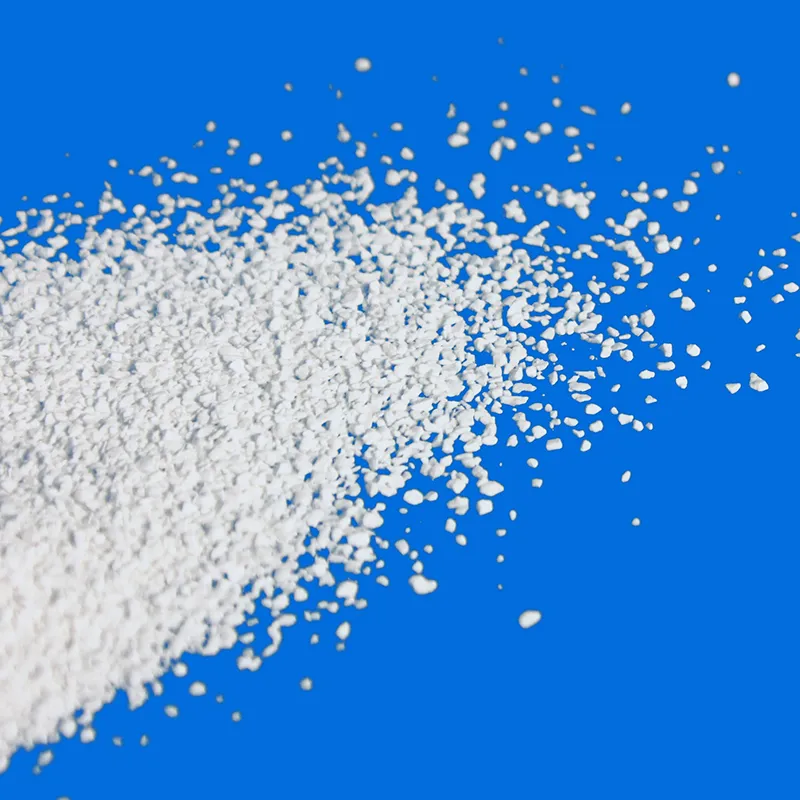
Exploring the Role of Polar Aprotics in SN2 Reaction Mechanisms and Outcomes
The Role of Polar Aprotic Solvents in SN2 Reactions
Nucleophilic substitution reactions are fundamental processes in organic chemistry, particularly in the synthesis of various compounds. One of the key factors that influence the rate and efficiency of these reactions is the choice of solvent. Among the different categories of solvents used in nucleophilic substitutions, polar aprotic solvents are particularly noteworthy for their distinctive effects on the mechanism and outcome of SN2 reactions.
Understanding SN2 Reactions
SN2, or bimolecular nucleophilic substitution, is a reaction mechanism characterized by a single concerted step. In this process, a nucleophile attacks an electrophilic carbon atom, simultaneously displacing a leaving group. The reaction exhibits second-order kinetics, meaning the rate is dependent on both the concentration of the nucleophile and the substrate. Typical characteristics of SN2 reactions include stereochemical inversion at the chiral center and a preference for primary and secondary substrates over tertiary due to steric hindrance.
Characteristics of Polar Aprotic Solvents
Polar aprotic solvents are those that have a significant dielectric constant and can stabilize ions while lacking the ability to form strong hydrogen bonds with nucleophiles. Common examples of polar aprotic solvents include dimethyl sulfoxide (DMSO), acetone, and acetonitrile. These solvents are characterized by their ability to solvate cations effectively, while they do not solvate anions as efficiently. This unique property plays a crucial role in facilitating SN2 reactions.
Enhancing Nucleophilicity
In an SN2 reaction, the nucleophile’s ability to attack the electrophile is paramount. In polar aprotic solvents, the lack of strong hydrogen bonding with the nucleophile means that the anions (often the nucleophiles) are less stabilized compared to their presence in protic solvents. As a result, the nucleophiles remain more free and reactive. This contrasts with polar protic solvents, where strong hydrogen bonding can hinder the nucleophile's ability to participate in the reaction, thereby leading to slower reaction rates.
polar aprotic solvents sn2

For example, sodium iodide (NaI) is much more active as a nucleophile in DMSO than it is in water
. The less solvation in DMSO allows the iodide ion to maintain its high nucleophilicity, making it a more effective participant in the SN2 reaction.Reaction Rate Increase
The rate of an SN2 reaction in a polar aprotic solvent can be significantly higher than in polar protic solvents. The effective solvation of cations and minimized solvation of anions allows for a more favorable transition state. As a result, this leads to lower activation energy barriers for the reaction. Consequently, reactions that would be slow or unfavorable in protic solvents can proceed much more smoothly and rapidly in polar aprotic environments.
Applications in Organic Synthesis
The advantages of polar aprotic solvents in accelerating SN2 reactions have made them invaluable in organic synthesis. Chemists often opt for these solvents when conducting reactions involving strong nucleophiles or when aiming for high reaction rates and yields. For instance, the synthesis of haloalkanes from alcohols using strong bases like sodium hydride is often performed in polar aprotic solvents to maximize the nucleophilicity of the base.
Additionally, the selectivity provided by polar aprotic solvents can be extremely beneficial in complex multi-step syntheses. By carefully selecting the solvent, chemists can direct the reaction pathway and optimize the conditions to favor the desired products over potential side reactions.
Conclusion
In conclusion, polar aprotic solvents play an essential role in facilitating SN2 reactions by enhancing the nucleophilicity of reagents and increasing reaction rates. Their unique properties offer significant advantages over polar protic solvents, making them a practical choice in organic synthesis. As the field of organic chemistry continues to evolve, the strategic application of polar aprotic solvents will undoubtedly remain a cornerstone of effective nucleophilic substitution reactions, paving the way for innovative synthetic methodologies and advancements in chemical research.
-
Understanding Synthetic Rubber OptionsNewsApr.27,2025
-
Trichloroisocyanuric Acid: Essential for Clean and Safe WaterNewsApr.27,2025
-
Sodium Dichloroisocyanurate: Key to Safe Water TreatmentNewsApr.27,2025
-
Sodium Acid Pyrophosphate: Essential in Modern Food ProcessingNewsApr.27,2025
-
Essential Water Treatment ChemicalsNewsApr.27,2025
-
Denatured Alcohol and Its Industrial UsesNewsApr.27,2025
-
The Versatile Uses of Sodium BicarbonateNewsApr.24,2025
Hebei Tenger Chemical Technology Co., Ltd. focuses on the chemical industry and is committed to the export service of chemical raw materials.
-

view more DiethanolisopropanolamineIn the ever-growing field of chemical solutions, diethanolisopropanolamine (DEIPA) stands out as a versatile and important compound. Due to its unique chemical structure and properties, DEIPA is of interest to various industries including construction, personal care, and agriculture. -

view more TriisopropanolamineTriisopropanolamine (TIPA) alkanol amine substance, is a kind of alcohol amine compound with amino and alcohol hydroxyl, and because of its molecules contains both amino and hydroxyl. -

view more Tetramethyl Thiuram DisulfideTetramethyl thiuram disulfide, also known as TMTD, is a white to light-yellow powder with a distinct sulfur-like odor. It is soluble in organic solvents such as benzene, acetone, and ethyl acetate, making it highly versatile for use in different formulations. TMTD is known for its excellent vulcanization acceleration properties, which makes it a key ingredient in the production of rubber products. Additionally, it acts as an effective fungicide and bactericide, making it valuable in agricultural applications. Its high purity and stability ensure consistent performance, making it a preferred choice for manufacturers across various industries.











